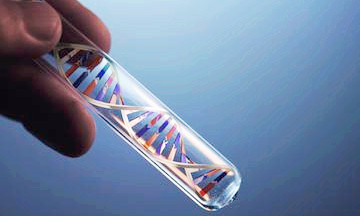Gemini Reels In $42M to Target Root Causes of Age-Related Blindness
October 25, 2017
Source: Xconom
 631
631

One of the biggest risk factors for vision loss is age. As people grow old, the central part of the retina can become damaged, leading patients to lose the central part of their vision in a condition called age-related macular degeneration (AMD).
In recent years, scientists have found genetic factors associated with the eye damage that leads to AMD. Gemini Therapeutics is developing a range of potential treatments—gene therapies, monoclonal antibodies and engineered proteins—based on these genetic underpinnings and it now has $42.5 million in funding to bring several experimental treatments into clinical trials.
The Series A investment round was co-led by Atlas Venture, Lightstone Ventures and OrbiMed, firms that also provided seed financing for the Cambridge, MA, company last year.
More than 10 million people in the U.S. have AMD, which is the most common cause of blindness in those 55 and older in developed countries and has no cure, according to the Foundation Fighting Blindness. The American Optometric Association notes that some researchers and clinicians say that nutrition can help slow its progression.
Gemini is developing treatments for the “dry” form of AMD, which accounts for approximately 90 percent of all AMD cases, and has no treatment. It is characterized by a buildup of protein and fat deposits underneath the retina. In the “wet” form of AMD, an abnormal growth of blood vessels leaks blood and fluid into the macula, the central part of the retina.
James McLaughlin, the company’s co-founder, president, and CEO, says that there are 30 different genes and hundreds of mutations associated with the disease, some of which can increase the risk of developing AMD by up to 20 times. Some of these mutations are in the complement system, a family of proteins that are part of the immune system and work together to boost inflammation and clear away microorganisms and damaged cells. It’s thought that a malfunctioning complement system drives dry AMD.
McLaughlin says his company has three targets in the complement system. Rather than treating the damage that results from AMD, McLaughlin says Gemini is going after the root cause of the disease. The hope is that Gemini’s therapies will repair the complement system and restore its proper function. But he hesitates to call the approach a potential cure, a description that executives at Spark Therapeutics (NASDAQ: ONCE) have used to describe their experimental gene therapy developed to treat an inherited form of blindness.
“I never liked that word,” McLaughlin says. “The goal is to correct the underlying biological problem and to do that more directly than people have in the past.”
By mining the genetic data associated with AMD, McLaughlin says Gemini has been able to identify patients who are most likely to respond to a particular therapeutic approach that the company is developing.
“We’re thinking about it like a rare disease,” McLaughlin says. Although AMD as a whole is not a rare disease, he adds that “it is so prevalent we can go after sub-populations [of patients] within AMD” as if each subgroup had a rare disease.
By Ddu
Read more on
- Disposable Medical Products that Keep Your Medical Facility Clean and Sterile March 31, 2022
- 10 Triumphant Drug Launches Of The Decade August 26, 2021
- Ultrasonic Nebulizer Market Views September 6, 2018
- 4 Best-Selling Digital Thermometers on Drugdu.com in 2018 September 5, 2018
- Don’t Miss These Tips before Your Cardiac Monitor Purchase September 5, 2018
your submission has already been received.
OK
Subscribe
Please enter a valid Email address!
Submit
The most relevant industry news & insight will be sent to you every two weeks.



